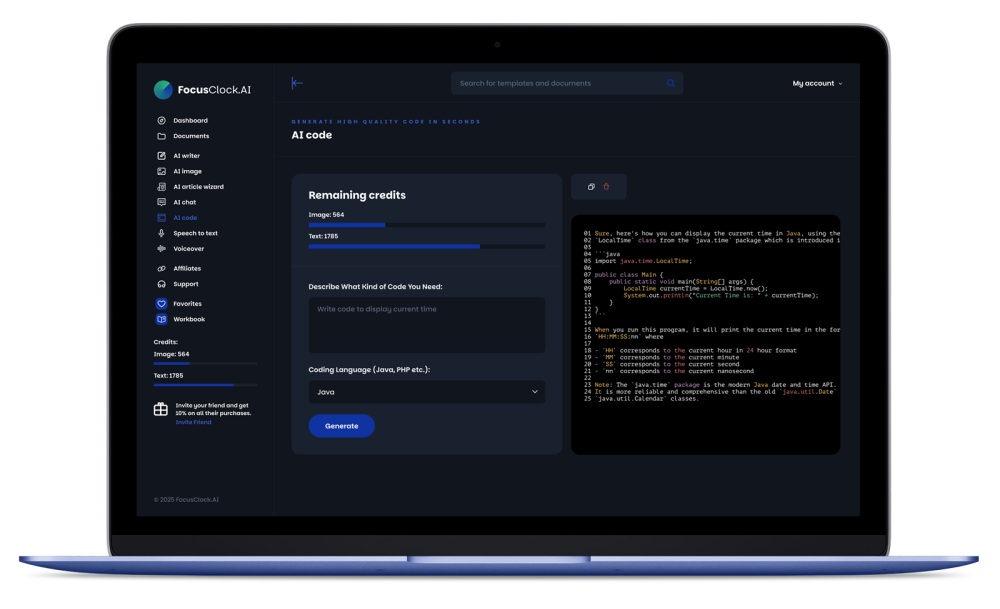
AI-Powered
AI Code

Enhance Your Effectiveness
Unlimited possibilities
The Importance of Data
AI systems thrive on data, using it as the fuel to develop intelligence. Large datasets are essential for training AI models, helping them identify trends, reduce errors, and enhance their decision-making capabilities. During the training process, AI adjusts its algorithms to perform better with each iteration. This ability to learn and improve from real-world data is a defining characteristic that makes AI powerful and versatile.
The Role of Algorithms
At the heart of AI code are powerful algorithms designed to interpret data and guide decision-making. These algorithms range from basic logical operations to complex neural networks capable of simulating human thought processes. Through approaches like supervised learning, unsupervised learning, and reinforcement learning, AI systems can identify patterns, predict outcomes, and adapt to changing circumstances with remarkable precision.
Defining AI Code
AI code is a form of programming that equips machines with the ability to perform tasks that typically require human intelligence. By combining data analysis with advanced algorithms, AI systems can learn, reason, and make decisions autonomously. This adaptability sets AI apart from traditional programming, as it evolves and improves through continuous learning without requiring constant human intervention.
Addressing Challenges and the Future
While AI offers immense benefits, it also poses challenges like ensuring fairness, reducing bias, and protecting data privacy. Transparency in AI decision-making and adherence to ethical standards are critical for its sustainable development. Looking forward, AI technology will likely become even more advanced, bringing innovative solutions to global problems and reshaping the future of industries and society.
Real-World Applications
AI code has transformed numerous industries by automating complex tasks and delivering accurate results. In healthcare, it supports early disease detection and treatment planning. In finance, AI helps analyze risks and forecast market trends. Retail businesses use it for personalized customer experiences, while autonomous vehicles rely on AI for navigation and real-time decision-making. Its applications continue to expand, revolutionizing industries and enhancing everyday life.

